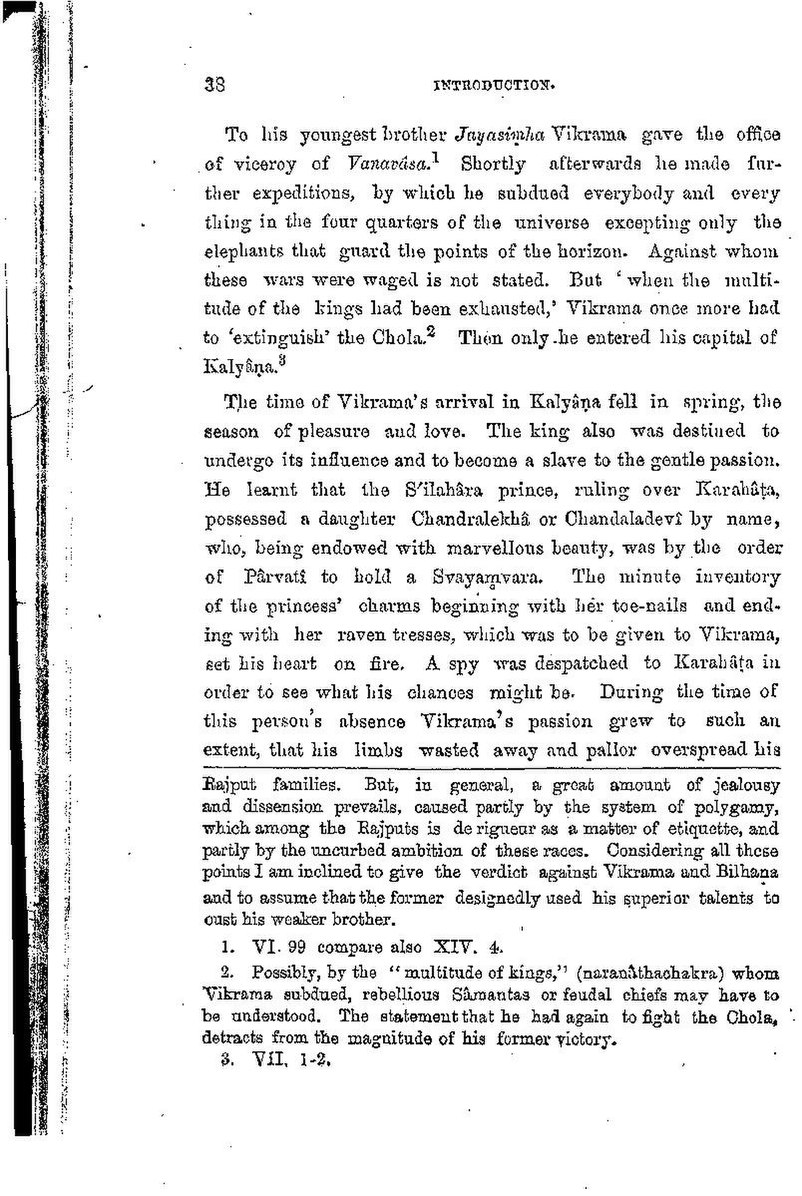NING V
38
INTRODUCTION.
To his youngest brother Jayasimha Vikrama gave the office
of viceroy of Vanavása. Shortly afterwards he made fur-
ther expeditions, by which he subdued everybody and every
thing in the four quarters of the universe excepting only the
elephants that guard the points of the horizon. Against whom
these wars were waged is not stated. But when the multi-
tude of the kings had been exhausted,' Vikrama once more had
to 'extinguish' the Chola.2 Then only be entered his capital of
Kalyana.
The time of Vikrama's arrival in Kalyana fell in spring, the
season of pleasure and love. The king also was destined to
undergo its influence and to become a slave to the gentle passion.
He learnt that the S'ilahâra prince, ruling over Karahata,
possessed a daughter Chandralekha or Chandaladevi by name,
who, being endowed with marvellous beauty, was by the order
of Pârvati to hold a Svayamvara. The minute inventory
of the princess' charms beginning with her toe-nails and end-
ing with her raven tresses, which was to be given to Vikrama,
set his heart on fire. A spy was despatched to Karabata in
order to see what his chances might be. During the time of
this person's absence Vikrama's passion grew to such an
extent, that his limbs wasted away and pallor overspread his
Rajput families. But, in general, a great amount of jealousy
and dissension prevails, caused partly by the system of polygamy,
which among the Rajputs is de rigueur as a matter of etiquette, and
partly by the uncurbed ambition of these races. Considering all these
points I am inclined to give the verdict against Vikrama and Bilhana
and to assume that the former designedly used his superior talents to
oust his weaker brother.
1. VI. 99 compare also XIV. 4.
2. Possibly, by the multitude of kings," (naranathachakra) whom
Vikrama subdued, rebellious Sâmantas or feudal chiefs may have to
be understood. The statement that he had again to fight the Chola,
detracts from the magnitude of his former victory.
3. VII, 1-2.
पृष्ठम्:विक्रमाङ्कदेवचरितम् - बिल्हण.pdf/४२
एतत् पृष्ठम् अपरिष्कृतम् अस्ति

